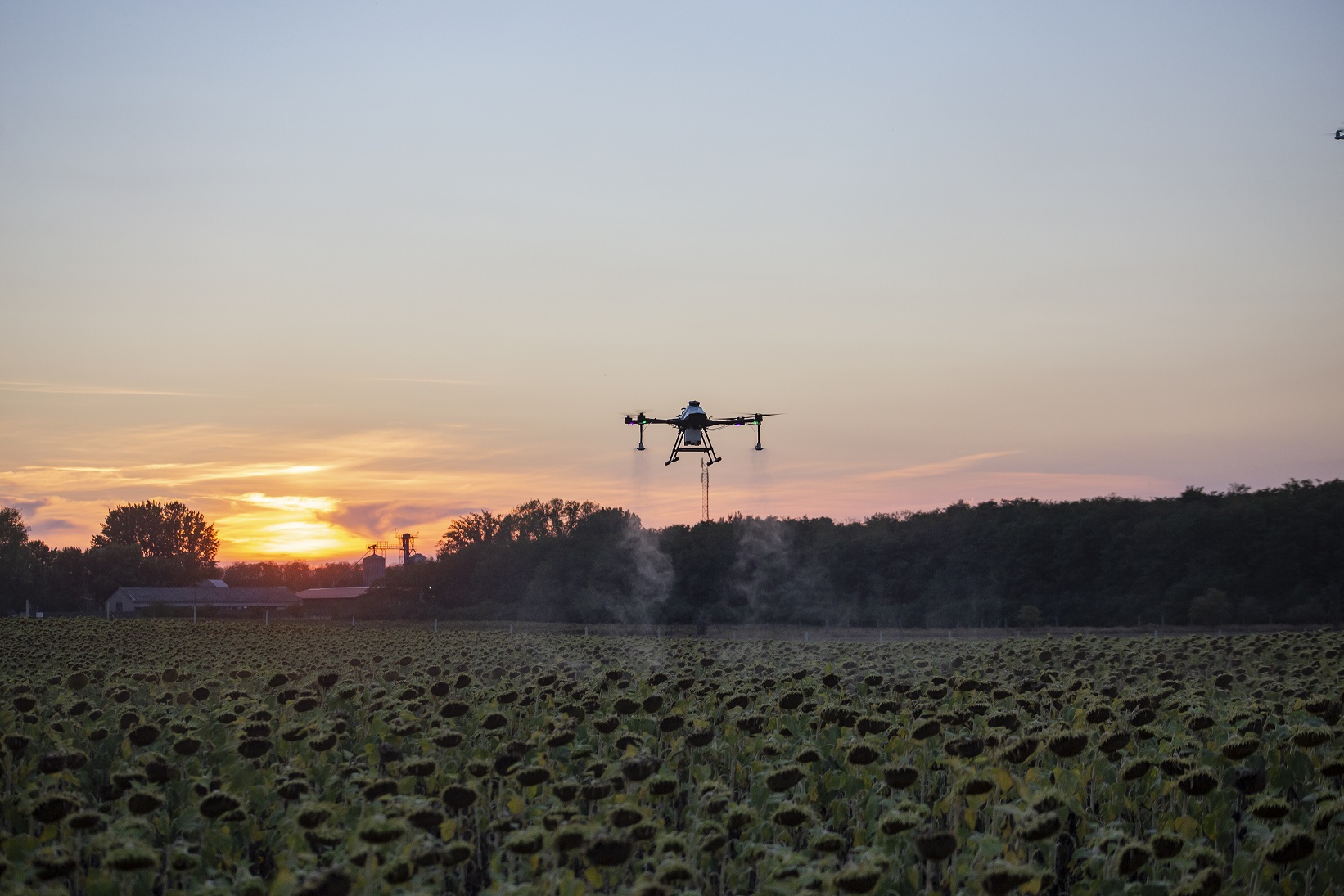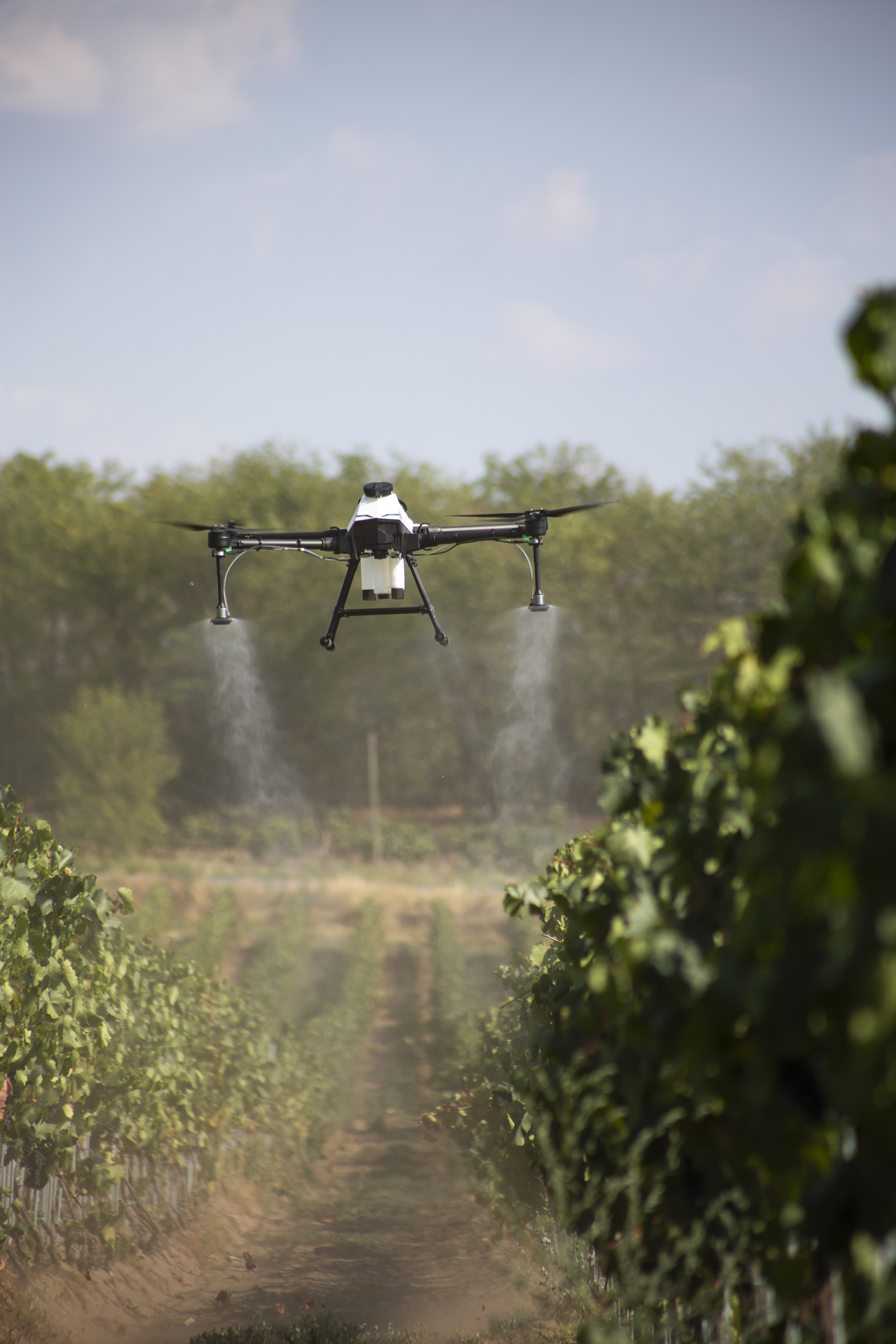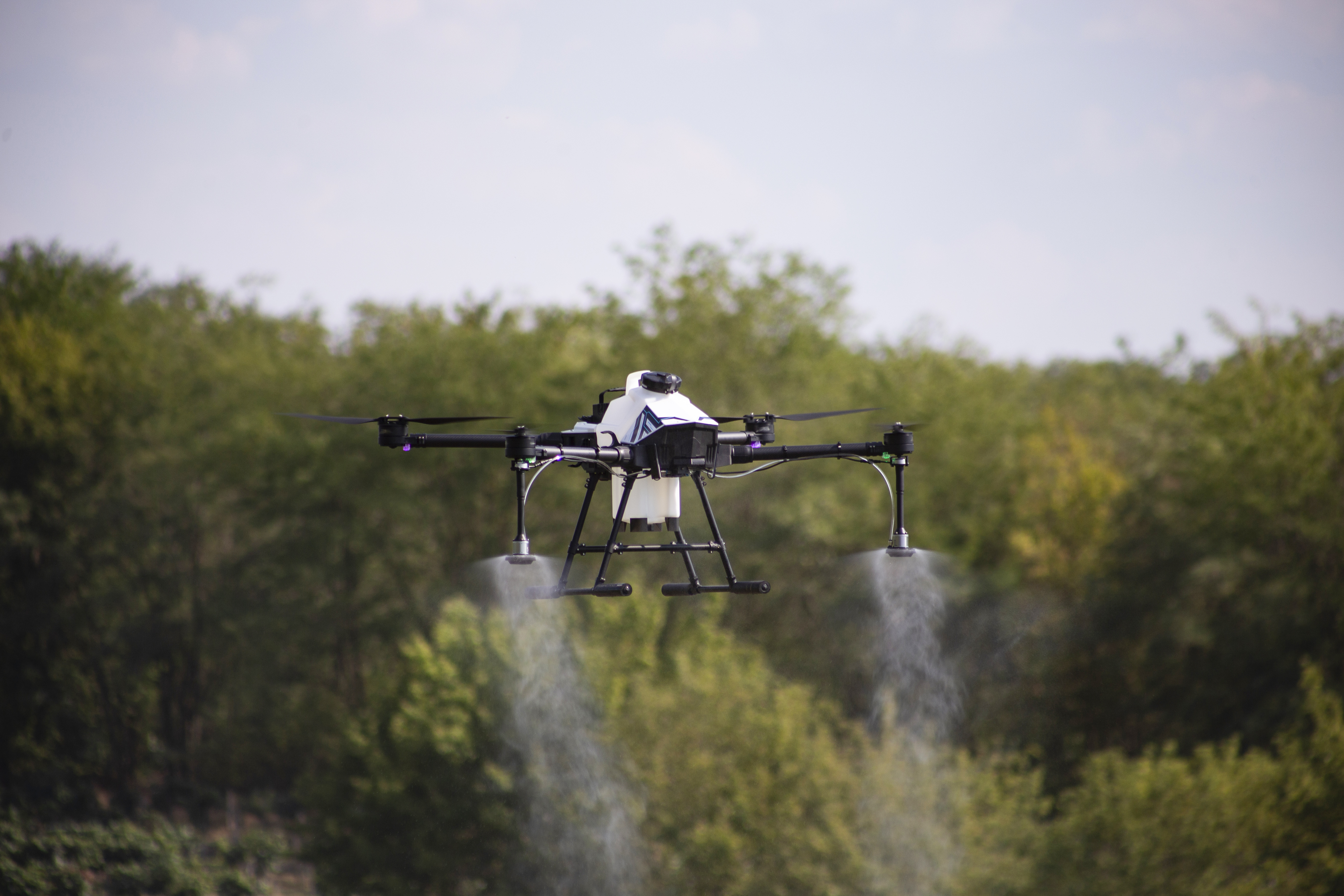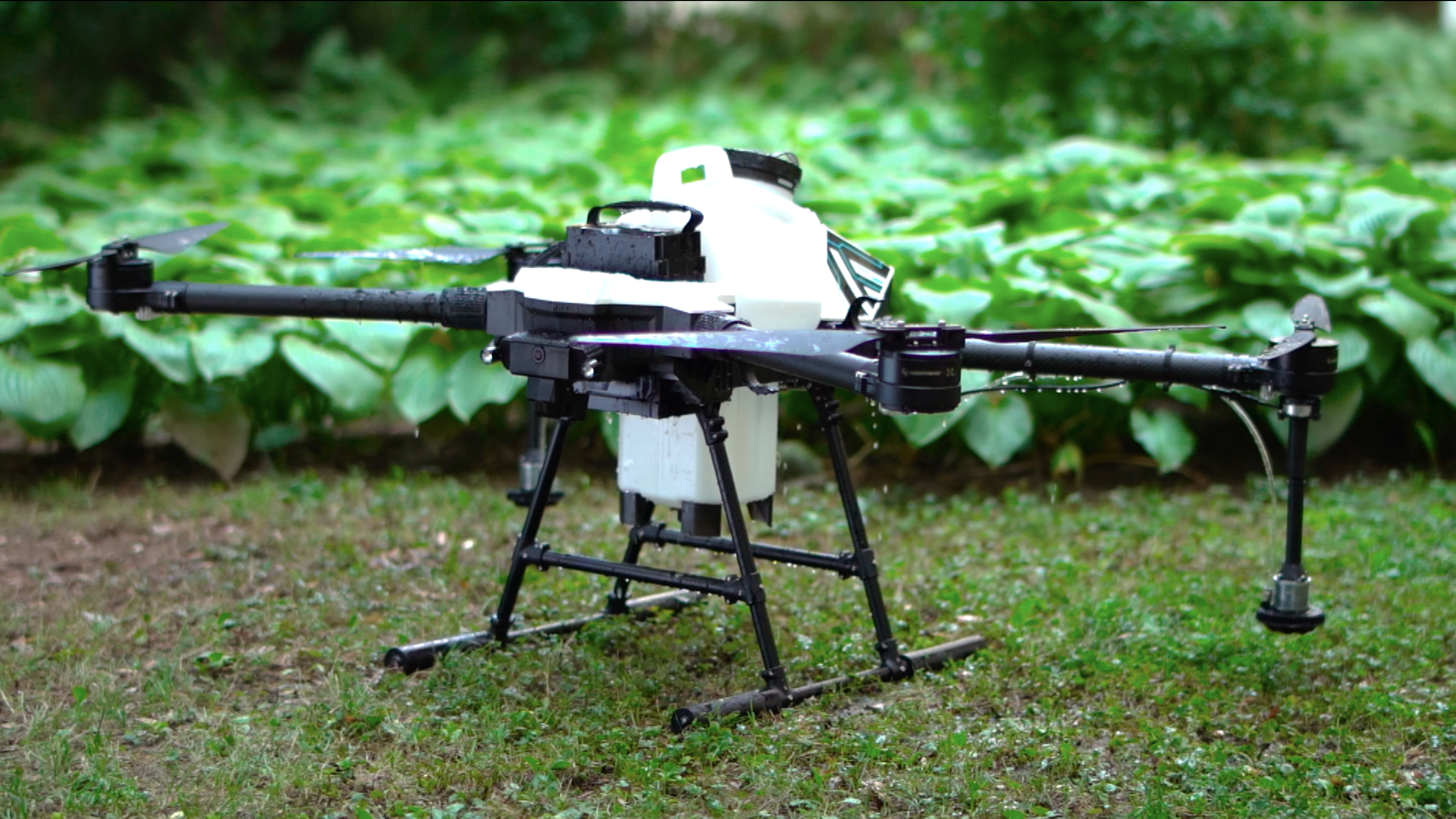AGRICULTURAL DRONES FOR SPRAYING - ADVANTAGES AND APPLICATIONS
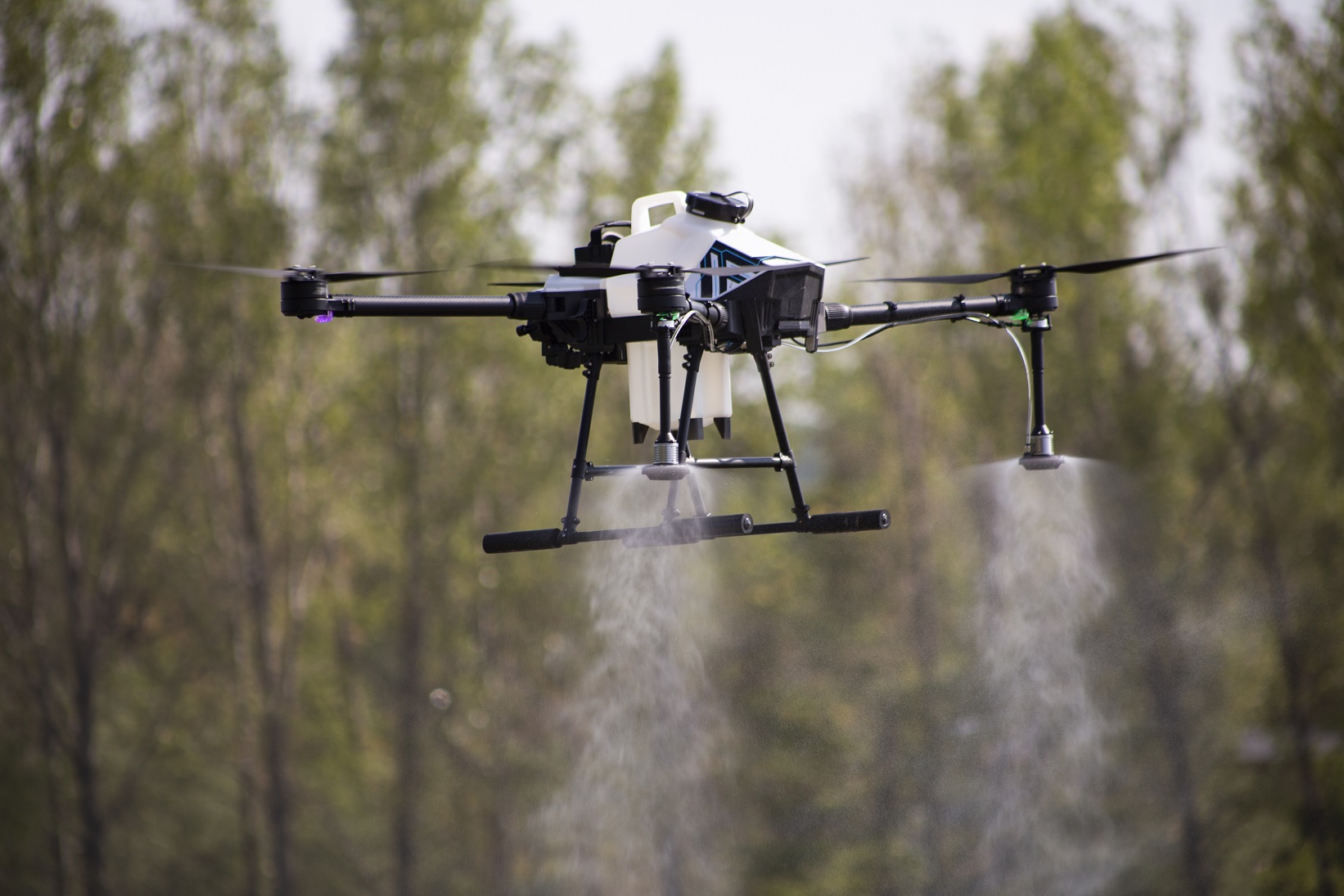
Agricultural drones have become an extremely popular tool in today's agriculture, bringing numerous benefits to producers and farms around the world. One of the most important applications of drones in agriculture is their use for spraying. With their ability to precisely and effectively spray crop protection products, drones help increase the efficiency of agricultural production and minimize environmental impact.
ABZ Innovation's agricultural spraying drones equipped with special tanks for crop protection products can effectively and precisely spray pesticides, herbicides and other substances on crop fields. By using drones, it is possible to accurately cover the entire field, without the losses and imperfections associated with traditional spraying methods such as agricultural machinery or aircraft.
What do ABZ Innovation's agricultural drones provide?
Efficient and accurate
One of the main advantages of using spraying drones for crop protection is their efficiency and accuracy. Spraying drones can cover large areas quickly and evenly, reducing the time and cost of crop protection. They can also be programmed to follow a precise flight path and deliver the right amount of fertilizer solution to each crop or field section, reducing waste and increasing efficiency.
Traditional crop protection fertilizer methods, such as manual work or the use of tractors, can be time-consuming and less accurate. Manual work can result in uneven coverage, while tractors can be too large and heavy in some fields and can damage soil and plants.
Cost-effective
Using spraying drones for crop protection can also be more cost-effective than traditional methods. Spraying drones can quickly and efficiently cover large areas, saving farmers time and money. In addition, fertilizer drones can apply fertilizer solutions to specific areas much more accurately, reducing waste, which can save farmers significant costs.
Conventional fertilizing methods, on the other hand, can be more expensive due to the need for manual labor, equipment, and fuel. In addition, conventional methods can result in more waste, due to uneven coverage or over-application of fertilizer.
Greater safety
Another advantage of using spraying drones for plant nutrition is greater safety. Spraying drones can operate in areas that are difficult or dangerous for people to access, such as steep terrain or areas containing hazardous chemicals. This can reduce the risk of injury or illness for farmers and workers.
Traditional plant nutrition methods, such as manual labor or the use of tractors, can be hazardous for workers, especially when handling hazardous chemicals. In addition, traditional methods can result in soil compaction, which can lead to erosion and other environmental problems.
Spray width and spray power
One of the concerns associated with spraying drones for crop protection fertilizing is spray width and power. However, with proper setup and equipment, spraying drones can achieve spray widths and spray performance comparable to conventional methods. The spray width of the drone is determined by the nozzle configuration and the flight altitude. By adjusting these factors, spraying drones can achieve spray widths comparable to conventional methods. The spraying performance of the drone is determined by the spraying speed and the spraying rate. Using high-powered pumps and spraying systems, spraying drones can achieve spray rates comparable to conventional methods, spraying up to 40 hectares per hour.
Where and how are agricultural drones being used?
The ABZ Innovation agricultural spraying drone can be used on all crops and for all types of spraying.
The most popular application is drying (defoliation) of sunflower - for two reasons: it is the crop where ordinary machines cause the most crop damage (in some cases, it can exceed 10%), and due to the height of the crop, ordinary spraying equipment cannot be used, and a special one - due to its extremely high price - only a few farmers or service providers have. For the same reason, spraying drones can also be popular for corn crops when they are too high.
Polish conditions show great potential for using ABZ Innovation agricultural drones to defoliate potato fields before harvest.
Vineyards, especially those with steep slopes, stand to gain a lot from the use of the L10, given that the drone can fly over rows and has the ability to reduce the spraying range to 1.5 meters - so there is no unnecessary spraying between rows.
The high application potential of the L10 can also be seen in fruit orchards or large individual trees, as in some cases only drones are able to reach the tops of tall trees.
As we know more and more about even the long-term negative effects of soil compaction from the use of heavy machinery, drone spraying can be an excellent alternative for sustainable agricultural production.
The most valuable application of drone spraying is when you can't access a field with heavy equipment, while you can still spray with a drone and in many cases save crops from damage, for example, after heavy rains with increased fungal diseases or in muddy conditions.
From the experience of the manufacturers and the surveys they have conducted, it is clear that when people try agricultural spraying drones for any type of treatment, they are very impressed and satisfied with the results, especially when they see that the same or better performance can be achieved without damaging crops, with less chemicals and much less water, and they declare that they will use the drones next time, and are eager to expand the use of agricultural spraying drones for other treatments.
Agricultural drones represent a revolution in agricultural spraying, bringing numerous benefits to producers and the environment. Efficient spraying of crop protection products, precision of operations, reduction of exposure to harmful substances, and minimization of waste and negative environmental impact are just some of the advantages that convince farmers to use drones in their operations.
When properly configured, the performance of spraying drones can easily compete with conventional methods and provide farmers with an effective tool to improve their crop production practices. As the technology evolves and becomes more accessible, it is likely that more and more farmers will use spraying drones to meet their crop protection fertilizer needs.
Recommended


